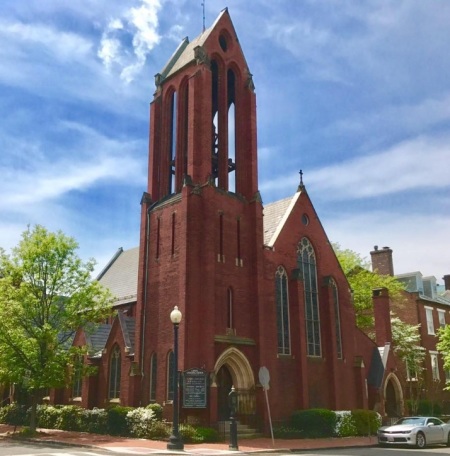DC's first confirmed coronavirus victim, an Episcopal priest, 'feeling pretty good,' says church

An Episcopal priest who was the first confirmed case of coronavirus in Washington, D.C., is doing well while recovering in the hospital, according to his church.
The Rev. Tim Cole, rector at Christ Church Georgetown, garnered headlines earlier this month by becoming the first confirmed case of coronavirus in the District of Columbia.
In a message sent out to the congregation on Sunday, the staff at Christ Church reported that Cole was still hospitalized but he said that he was “fever free and feeling pretty good.”
The church also noted that other members of their congregation “with confirmed cases of COVID-19 are resting at home and continuing to improve.”
“Continue to reach out to your neighbors, particularly those whom you might not have contacted previously. Let’s care for one another and continue to hold our community in prayer,” stated the church.
A leader in a prominent historic church and in his 50s, Cole tested positive for the coronavirus earlier this month and was hospitalized. His diagnosis was considered especially alarming as he was the first reported case in the District and also because he had encountered scores of congregants.
“I can now confirm that I am the individual [in Washington, D.C.] who tested positive for the coronavirus,” said Cole in an email sent out on March 8, as reported by The Georgetowner.
“I want to assure you that I will be okay … I am receiving excellent care and am in good spirits under the circumstances. I will remain quarantined for the next 14 days as will the rest of my family.”
Cole testing positive for the coronavirus prompted Christ Church to cancel Sunday worship services for the first time since the 1800s, which had happened due to a fire.
Over the past several days, countless churches and school districts have closed down as part of the effort to curb the rate of infection, often offering online programs instead.
Last Friday, President Donald Trump issued a national emergency regarding COVID-19, building upon previous efforts to prevent the spread of the disease.
The decision to declare a national emergency came not long after the World Health Organization declared the COVID-19 outbreak a pandemic.
“The spread of COVID-19 within our nation’s communities threatens to strain our Nation’s healthcare systems,” stated the president.
“It is incumbent on hospitals and medical facilities throughout the country to assess their preparedness posture and be prepared to surge capacity and capability. Additional measures, however, are needed to successfully contain and combat the virus in the United States.”





















